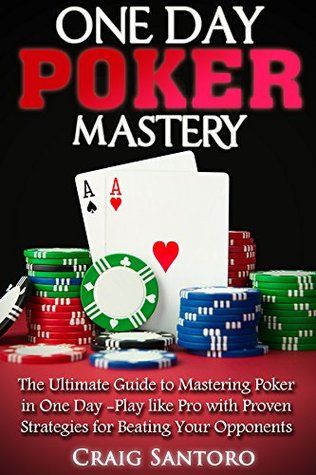
Poker Tournament Mastery: Navigating the Road to Victory
In the world of poker tournaments, mastering the game isn’t just about luck. It requires strategic thinking, discipline, and a deep understanding of the game dynamics. Whether you’re a beginner or an experienced player looking to enhance your skills, this article will guide you through the road to victory in poker tournaments.
Understanding the Basics
Before diving into the complexities of poker tournament mastery, it’s important to have a solid foundation in the basics. Familiarize yourself with hand rankings, different betting rounds, and the overall structure of poker tournaments.
Sharpen Your Skills: Study, Practice, Repeat
To become a successful poker player, you need to invest time and effort into studying the game. Read books, watch instructional videos, and analyze strategies employed by professional players. Utilize online resources that offer hand analysis and study different playing styles.
However, knowledge alone isn’t enough. Practice is indispensable. Play regularly, whether it’s online or in-person, to gain experience and implement the strategies you’ve learned. Remember, practice makes perfect.
Bankroll Management
One critical aspect of poker tournament mastery is bankroll management. Set realistic goals and never gamble with money you can’t afford to lose. Determine the buy-ins you’re comfortable with and stick to your budget. Remember, poker tournaments can be unpredictable, so managing your bankroll is key to longevity in the game.
Develop a Solid Strategy
Having a well-defined strategy tailored to poker tournaments is crucial. Understand the different stages of the tournament, including early, middle, and late stages, and adapt your strategy accordingly.
In the early stages, focus on playing tight and selective, as many opponents tend to be reckless. Preserve your chips and only engage in strong hands. As the tournament progresses to the middle stages, loosen up and take advantage of opportunities to build your stack. In the late stages, when blinds are high, be aggressive and exploit your opponents’ weaknesses.
Reading Your Opponents
The ability to read your opponents is one of the most valuable skills you can possess in poker tournaments. Pay close attention to their betting patterns, body language, and reactions. Look for tells that might indicate the strength or weakness of their hands.
However, be aware that not all players exhibit obvious tells. In such cases, rely on the analysis of their previous hands and try to identify their playing style. Are they tight or aggressive? Are they consistent or unpredictable? Adjust your strategy accordingly to outplay your opponents.
Mastering Bluffing and Pot Control
Bluffing is an art in poker, and using it strategically can significantly impact your tournament success. However, bluff sparingly and choose your moments wisely. Analyze the board and your opponents’ tendencies before attempting a bluff. Differentiate between a pure bluff and a semi-bluff, where you have the potential to improve your hand.
On the other hand, pot control is crucial in certain situations. Be cautious when facing aggressive opponents or dangerous boards. Controlling the size of the pot by checking or making small bets can save you from significant losses.
The Importance of Position
Position is an essential element in poker tournaments that often gets overlooked. Being in late position provides a significant advantage as you have more information about your opponents’ actions before making your decisions. This allows you to make more informed choices and potentially steal pots with well-timed bets or raises.
Conversely, being in early position requires caution, as you’ll have less information and risk encountering stronger hands. Adjust your starting hand range accordingly and avoid speculative hands in early position.
Patience and Emotional Control
In the heat of the game, it’s easy to get carried away by emotions. However, maintaining patience and emotional control is vital. Avoid making impulsive decisions based on frustration or tilt. Stick to your strategy and make rational choices.
Remember, poker tournaments are marathons, not sprints. The road to victory is often long and requires resilience. Stay focused, disciplined, and avoid chasing losses. Patience and emotional control will ultimately pay off in the long run.
Conclusion
Mastery of poker tournaments is a continuous journey that combines skill, strategy, and adaptability. By understanding the fundamentals, honing your skills through study and practice, managing your bankroll effectively, and developing a well-defined strategy, you can navigate the road to victory in poker tournaments. Remember, success in poker requires dedication, patience, and a constant hunger to improve your game.


